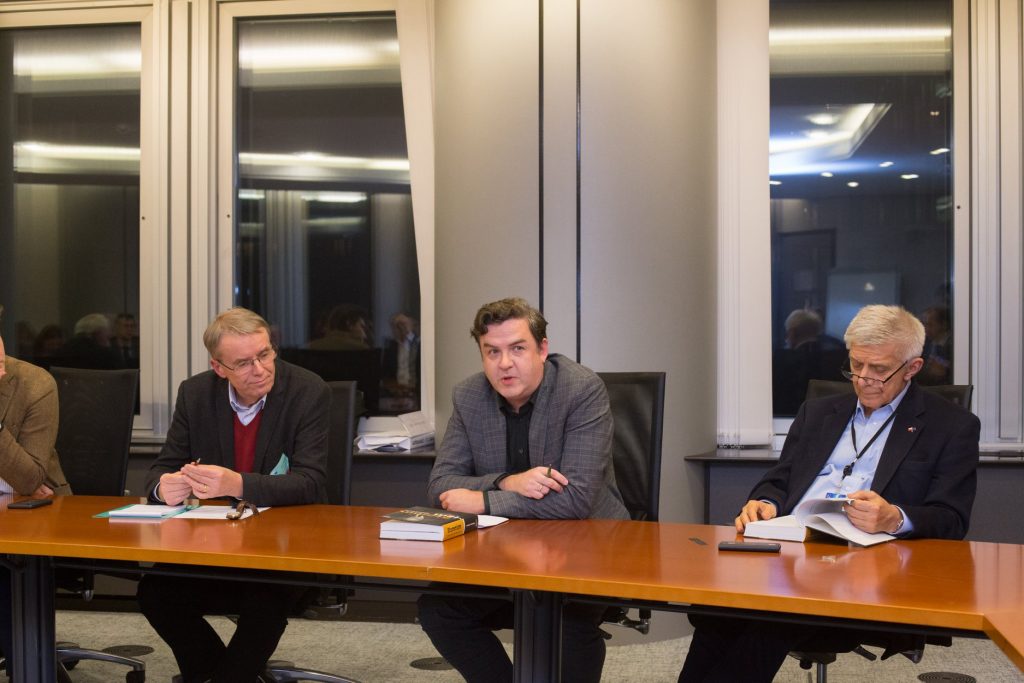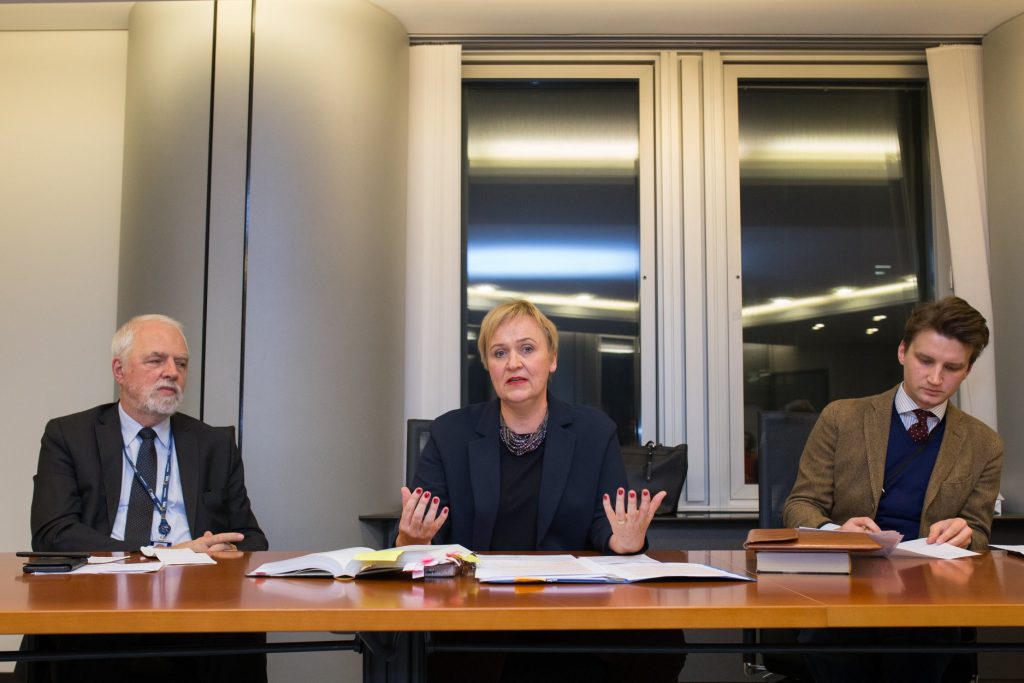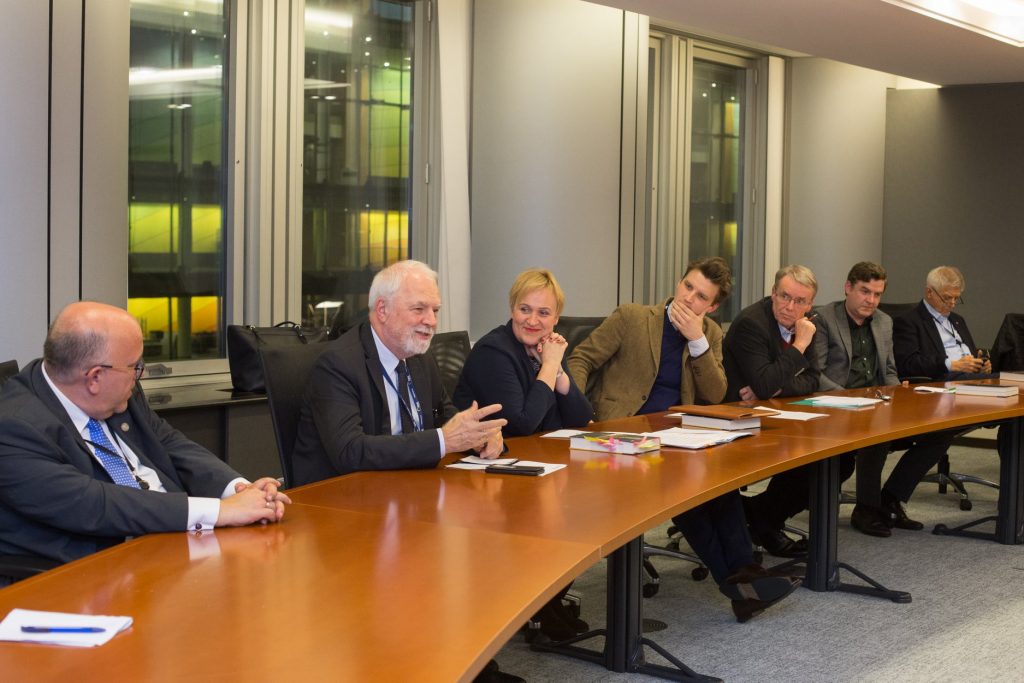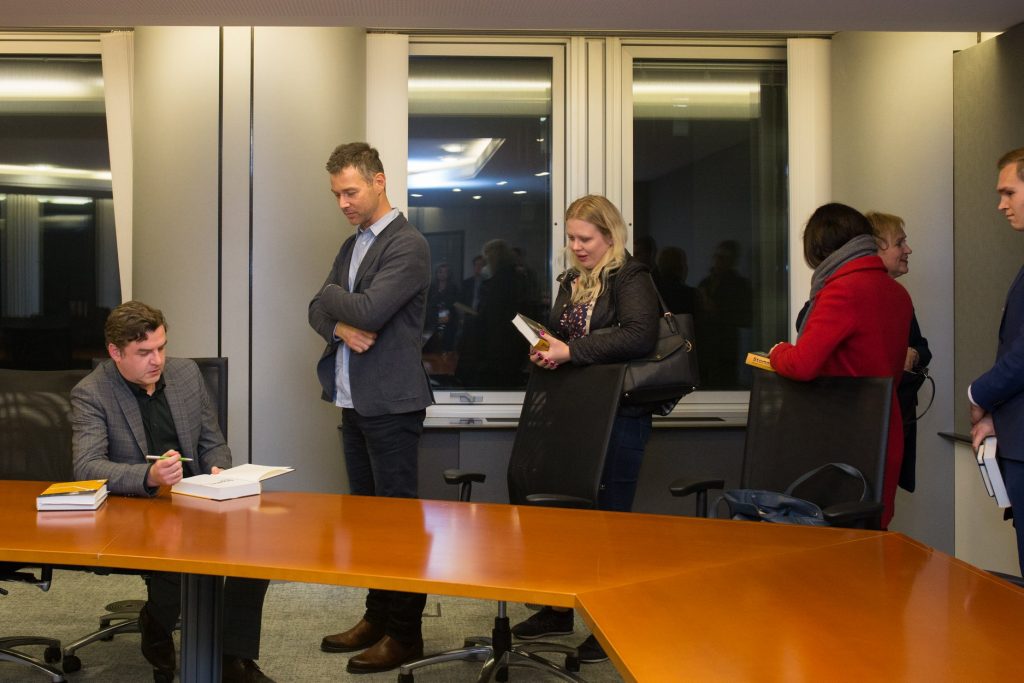On 12th November 2019, the Polish Science Contact Agency organized jointly with the Tygodnik Powszechny Club in Brussels, the Znak Publishing House and the Regional Office of the West Pomeranian Voivodeship in Brussels the panel discussion: “Is another politics possible? The legacy of prof. Stanisław Stommy in European politics”. The discussion was organized around the book “Stommizm. Political biography of Stanisław Stomma”, written by prof. Radosław Ptaszyński and published by the Znak Publishing House in 2018. The book was nominated for the Moczarski’s award for the best history book in 2019.
In the discussion panel participation: prof. Radosław Ptaszyński, author of the book “Stommizm. Political biography of Stanisław Stomma” (University of Szczecin), dr hab. Małgorzata Molęda-Zdziech (Polish Science Contact Agency), Henryk Woźniakowski (Znak Publishing House) and dr Jan Olbrycht (Member of the European Parliament). The discussion was led by dr Michał Matlak (European Parliament).
At the beginning, Radosław Ptaszyński briefly reminded the figure of Stanisław Stomma, an outstanding intellectual of the 20th century, patron of the opposition of the Polish People’s Republic, builder of the democracy of the Third Polish Republic. Stomma lived in the years 1908-2005, he was a lawyer, professor of legal sciences, specialist in the field of criminal law, academic teacher, publicist, Catholic activist and politician. In the years 1957–1976, he was a member of the Polish Parliament of the Polish People’s Republic for five terms, and in the years 1981–1984 – chairman of the Primate’s Social Council, and in the years 1989–1991 – a senator of the first term. He was a Knight of the Order of the White Eagle. Ptaszyński explained stommism as a political concept, which consists of such values as “minimalism”, “reason of state”, “compromise”, “strategy of small steps”, reconciliation between nations despite the difficult past. Therefore, they may seem unfashionable in contemporary politics. Stanisław Stomma is a figure – a symbol of courage and loyalty to his values, which he has proved publicly many times. As Ptaszyński explained: “When on February 10, 1976, the parliament voted on amendments to the Constitution of the Polish People’s Republic, he was the only one who said no. No – PZPR is not the leadership force of the nation, no – Poland is not a socialist state, operating under the dictation of the USSR, no – the rights of citizens cannot be made conditional on fulfilling their obligations towards a socialist state. Over twenty years earlier, as one of the editors of Tygodnik Powszechny, he refused to include Stalin’s obituary, and in 1968 he loudly protested against the authorities’ aggression towards revolted youth.”
Jan Olbrycht argued that stommism is interesting idea for politicians today because it is based on fundamental values that are always valid. Politics needs stable values. Stommism evokes rationality and reliable argumentation, and warns against the emotionality of the discussion, which always improves the quality of the debate.
Henryk Woźniakowski, as he knew Stanisław Stomma personally, shared his personal memory of him. Róża Thun, a Polish MEP, remembered Stomma as an elegant gentleman, with a characteristic hairstyle, practically unchanged for years, who wanted to be up to date with technology (he used a computer) and the world of information.
Woźniakowski believed that Stomma’s most lasting legacy was his style, both in journalism and politics, which can be described as balanced, rich in argumentation. Stomma very often repeated after Jasiennica that “we should conquer the world with our heads, heads, heads.”
Małgorzata Molęda-Zdziech tried to answer the question – whether in times when politics became a spectacle, stommism is possible. In her opinion, this kind of value-grounded politics is needed. In times of truth and fake news – we need to return to basic values, to positivist ideals: work, effort, commitment or “long duration”. Continuous education is needed as well. Prof. Molęda-Zdziech metioned Max Weber’s book ‘Politics as a profession and mission. In her opinion, this title aptly reflects Stanisław Stomma’s understanding of political involvement.
The panel met with great interest. MEPs, their advisers and assistants, as well as Poles working in EU institutions were present at the Hall.

@Basia Pawlik Photography 
@Basia Pawlik Photography 
@Basia Pawlik Photography 
@Basia Pawlik Photography



